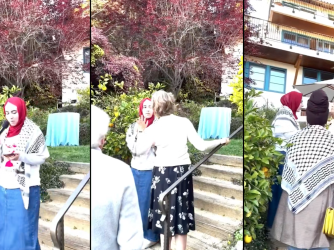Table of Contents
Yale Editorial Defends Free Speech after ‘Sluts’ Photo
Fight speech you dislike with more speech, we like to say. The Yale Women's Center rose to the challenge, responding to a photo featuring the words "We Love Yale Sluts" with a 26-page manifesto (more local coverage is here). The Yale Daily News (YDN) has read all 26 pages and has provided a level-headed critique of many of the Women's Center's points and proposals. YDN admirably parts ways with the manifesto over the definition of harassment:
The Women's Center devoted one section to the Zeta Psi incident specifically, condemning the University for not recognizing that the students' posing constituted sexual harassment under the undergraduate regulation that bans conduct having the effect of "creating an intimidating or hostile academic or work environment."
But for the sake of not undermining its own argument that sexual harassment is more pervasive than any photograph or single incident can convey, the Women's Center should accept Zeta Psi's apology, drop the possibility of a lawsuit and genuinely work with the rest of the student community to achieve its many reasonable and necessary reforms. [...]
The details are one thing. But at the end of the day, the larger question raised by the report is this: To what extent should the administration be involved in regulating and preventing the misogyny that creeps onto campus?
In short, Yale should bolster institutional resources supportive of women and strengthen its sexual-harassment education and reporting policy for 2008.
Administrators, however, need not regulate fraternities or render more non-gender-neutral speech as harassment. Doing so could have unintended consequences, such as provoking campus resistance to the litany of otherwise sensible reforms or chilling speech. Our community is stronger when ideas, however uncomfortable, are exchanged freely—and without the threat of punishment.
Well said, YDN. Yale doesn't need to waste administrators' time making them the thought police or the speech police, and individual uses of allegedly offensive language are almost never severe enough to constitute harassment.
Recent Articles
FIRE’s award-winning Newsdesk covers the free speech news you need to stay informed.

Salman Rushdie calls out left-wing censorship in CBS interview

Western Washington University punishes racing team for sending a photo of a penis drawing on a pizza box

No, the Berkeley Law student didn’t have a First Amendment right to interrupt the dean’s backyard party
